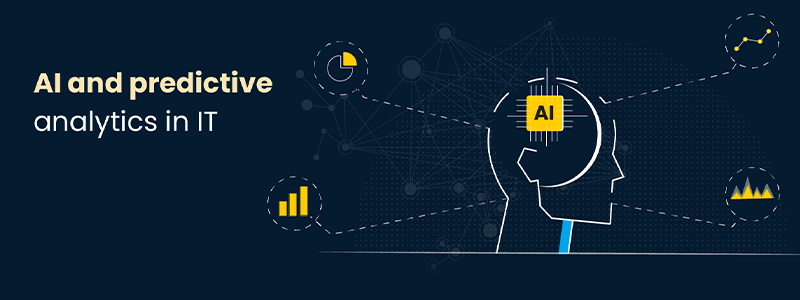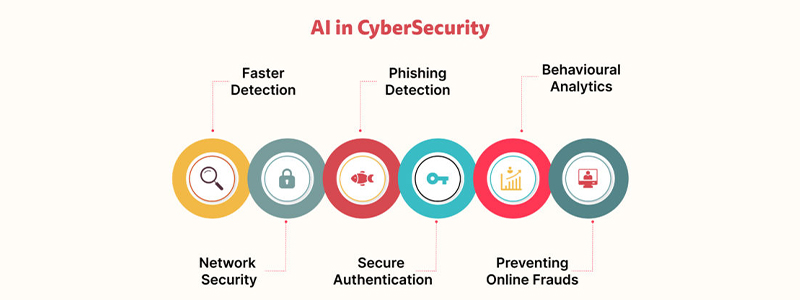Artificial Intelligence (AI) is of great importance for a variety of reasons, and its impact spans numerous domains. Artificial Intelligence (AI) holds significant importance in various aspects of modern society, impacting industries, research, healthcare, finance, and everyday life. Here are some key aspects highlighting the importance of AI:
Automation and Efficiency: Artificial Intelligence can automate repetitive and time-consuming tasks, which can improve efficiency and productivity across industries. This automation can lead to cost savings and allow human workers to focus on more creative and complex tasks. AI can automate repetitive tasks and processes, improving efficiency and productivity in various industries. This can lead to cost savings and allow humans to focus on more creative and high-value tasks.

Decision-making: Artificial Intelligence systems can analyse vast amounts of data quickly and make data-driven decisions. This is particularly valuable in fields like healthcare, finance, and logistics, where timely and accurate decision-making is crucial. Artificial Intelligence systems can assist in decision-making by providing data-driven recommendations and predictions. This is valuable in fields such as finance, where Artificial Intelligence can help with risk assessment, and healthcare, where it can aid in diagnosis and treatment planning.
Data Analysis: Artificial Intelligence can analyse vast amounts of data quickly and accurately, uncovering valuable insights and patterns that might be difficult for humans to detect. This is particularly crucial in fields like healthcare, finance, and marketing.

Personalization: Artificial Intelligence enables the customization of products and services, such as personalized recommendations in e-commerce or personalized healthcare treatment plans. This enhances customer experiences and outcomes. Artificial Intelligence can tailor products and services to individual preferences and needs, enhancing customer experiences. This personalization is evident in recommendation systems used by companies like Amazon and Netflix.
Predictive analytics: Artificial Intelligence can predict future trends, behaviours, and events based on historical data. This capability is beneficial for businesses in terms of forecasting demand, preventing equipment failures, and optimizing supply chains.

Healthcare advancements: Artificial Intelligence can assist in diagnosing diseases, analysing medical images, and discovering new drug compounds. It has the potential to improve patient care, reduce medical errors, and enhance drug discovery processes. AI has the potential to revolutionize healthcare by improving diagnostic accuracy, drug discovery, and treatment planning. Machine learning models can analyse medical images, predict disease outbreaks, and assist in drug development.
Natural language processing (NLP): Artificial Intelligence -driven NLP technologies are used in chatbots, virtual assistants, and language translation services. They enhance communication and accessibility for people worldwide. AI-driven NLP technologies enable machines to understand and generate human language. This is critical for chatbots, virtual assistants, and language translation services.
Autonomous systems: AI is crucial in developing self-driving cars, drones, and robots. These autonomous systems have the potential to revolutionize transportation, logistics, and various industries. Artificial Intelligence powers autonomous vehicles, drones, and robots, which have the potential to transform transportation, logistics, and manufacturing industries. These systems can improve safety and reduce human error.
Scientific research: Artificial Intelligence can accelerate scientific discoveries by processing and analysing complex data sets in fields like genomics, astronomy, and climate science. Artificial Intelligence accelerates scientific research by analysing complex data, simulating experiments, and predicting outcomes. It aids in fields like genomics, materials science, and climate modelling.
Cybersecurity: Artificial Intelligence can help detect and mitigate cyber threats by identifying patterns and anomalies in network traffic and user behaviour, enhancing overall security. AI helps in detecting and responding to cybersecurity threats in real time. Machine learning algorithms can identify patterns of suspicious behaviour and protect sensitive data.

Customer service: Artificial Intelligence -powered chatbots and virtual assistants can provide 24/7 support, improving customer satisfaction and reducing response times.
Education and training / Skill Development: Artificial Intelligence can personalize learning experiences, adapt content to individual needs, and offer valuable insights into student performance. AI education and training programs are essential for preparing the workforce for the jobs of the future. Learning AI skills can enhance career prospects.
Accessibility: Artificial Intelligence -driven technologies, such as speech recognition and computer vision, can empower individuals with disabilities by providing new means of communication and interaction with the world. AI can improve accessibility for individuals with disabilities. Speech recognition, text-to-speech, and other AI-driven tools make digital content more inclusive.
Environmental sustainability or Environmental Impact: AI can optimize energy consumption, monitor and manage resources more efficiently, and support climate modelling and environmental conservation efforts. AI can contribute to environmental sustainability by optimizing energy consumption, managing resources efficiently, and predicting environmental changes through data analysis.
Economic growth: AI has the potential to create new industries, job opportunities, and economic growth by fostering innovation and driving competitiveness. The AI industry itself is a significant driver of economic growth, creating jobs and fostering innovation. It also helps businesses stay competitive in a rapidly changing technological landscape.
Ethical considerations: The ethical implications of AI, including issues related to bias, fairness, transparency, and privacy, highlight the importance of responsible AI development and regulation. Understanding and addressing the ethical and societal impacts of AI is crucial. It involves ensuring fairness, transparency, and responsible AI deployment.
In summary, the importance of artificial intelligence lies in its capacity to transform industries, improve decision-making, enhance human experiences, and address complex challenges in various sectors of society. However, it also raises ethical and societal concerns that require careful consideration and responsible development. Majorly artificial intelligence lies in its ability to transform industries, enhance decision-making, improve efficiency, and contribute to scientific advancements. However, it also brings ethical and societal challenges that must be carefully managed as AI continues to advance.
About the Author
Dr. B. V. V. Siva Prasad, working as an Associate Professor at Department of CSE, in Anurag University, Hyderabad, Telangana.
About Co-author
Dr. Venkata Kishore Kumar Rejeti, works as a Professor in Department of Computer Science & Engineering at KKR & KSR Institute of Technology & Sciences, Vinjanampadu, Guntur.